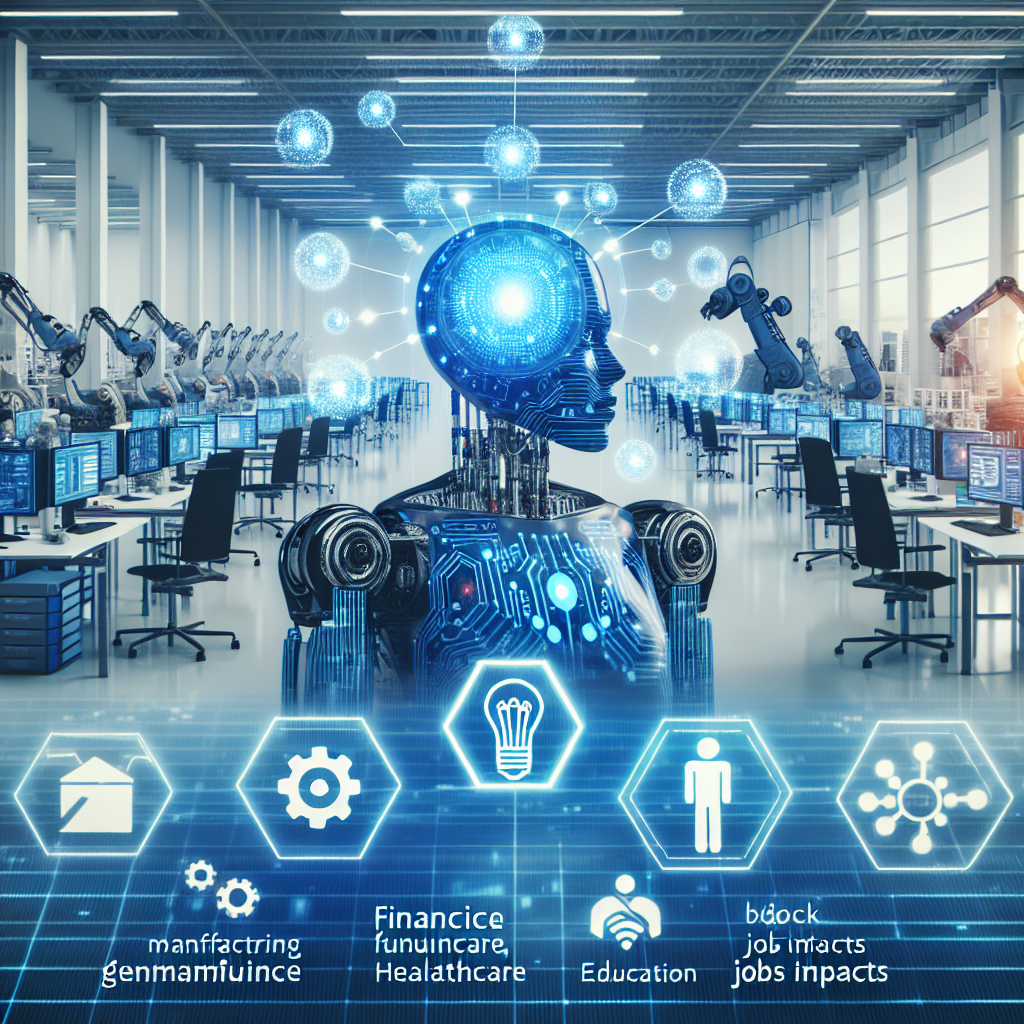Artificial General Intelligence (AGI) is a term that is becoming increasingly prevalent in discussions about the future of work. AGI refers to machines that possess human-like intelligence and cognitive abilities, enabling them to perform a wide range of tasks that traditionally require human intelligence.
The potential impact of AGI in the workplace is significant, as it has the potential to revolutionize industries and transform the way we work. While the full implications of AGI are still unknown, it is clear that AGI will have a profound impact on jobs and industries across the board.
In this article, we will explore how AGI is expected to impact jobs and industries, and how organizations can prepare for the changes that are likely to come.
AGI in the Workplace: How It Will Impact Jobs and Industries
1. Automation of Routine Tasks
One of the most immediate impacts of AGI in the workplace will be the automation of routine tasks. AGI has the potential to perform a wide range of tasks that are currently performed by humans, such as data entry, customer service, and even some aspects of creative work.
As a result, many jobs that involve repetitive tasks are at risk of being automated by AGI. This includes jobs in manufacturing, retail, and administrative roles. While this may lead to job losses in the short term, it is also likely to create new opportunities in fields such as programming, data analysis, and machine learning.
2. Increased Efficiency and Productivity
AGI has the potential to significantly increase efficiency and productivity in the workplace. By automating routine tasks and streamlining processes, AGI can help organizations operate more efficiently and effectively.
For example, AGI can analyze large amounts of data in a fraction of the time it would take a human, enabling organizations to make faster and more informed decisions. This can lead to increased innovation, improved customer service, and overall better performance.
3. Transformation of Industries
The impact of AGI on industries is expected to be transformative. Industries that rely heavily on human intelligence and creativity, such as marketing, design, and healthcare, are likely to see significant changes as AGI becomes more prevalent.
For example, in the field of marketing, AGI can analyze consumer data and behavior to create targeted advertising campaigns that are more effective than those created by humans. In healthcare, AGI can assist doctors in diagnosing diseases and developing treatment plans, leading to better patient outcomes.
4. Job Displacement and Creation
While AGI has the potential to automate many routine tasks, it is also likely to create new job opportunities in fields such as AI programming, data analysis, and human-machine collaboration. As AGI becomes more prevalent in the workplace, organizations will need employees who can design, implement, and manage AI systems.
However, there is a risk that the rapid advancement of AGI could lead to job displacement for workers who are unable to adapt to the changing demands of the workforce. This highlights the importance of investing in education and training programs that equip workers with the skills they need to thrive in an AI-driven economy.
5. Ethical and Social Implications
The rise of AGI in the workplace also raises important ethical and social implications. As machines become more intelligent and capable of performing complex tasks, questions arise about the impact of AGI on job security, income inequality, and privacy.
Organizations will need to consider how they can ensure that the benefits of AGI are distributed equitably among employees, and how they can protect the privacy and security of sensitive data. Additionally, there are concerns about the potential misuse of AGI for malicious purposes, such as surveillance and manipulation.
FAQs
Q: Will AGI replace all human jobs?
A: While AGI has the potential to automate many routine tasks, it is unlikely to replace all human jobs. There are many tasks that require human intelligence and creativity, such as problem-solving, critical thinking, and emotional intelligence, that are difficult for machines to replicate.
Q: How can organizations prepare for the impact of AGI in the workplace?
A: Organizations can prepare for the impact of AGI by investing in education and training programs that equip employees with the skills they need to thrive in an AI-driven economy. Additionally, organizations can explore ways to integrate AGI into their existing processes and workflows to increase efficiency and productivity.
Q: What are the potential benefits of AGI in the workplace?
A: The potential benefits of AGI in the workplace include increased efficiency and productivity, improved decision-making, and the ability to perform complex tasks that are beyond the capabilities of humans. AGI has the potential to revolutionize industries and create new opportunities for growth and innovation.
In conclusion, AGI is expected to have a profound impact on jobs and industries in the coming years. While the full implications of AGI are still unknown, it is clear that organizations will need to adapt to the changing demands of the workforce and invest in education and training programs to ensure that employees are equipped with the skills they need to thrive in an AI-driven economy. By preparing for the impact of AGI, organizations can position themselves for success in the future of work.

